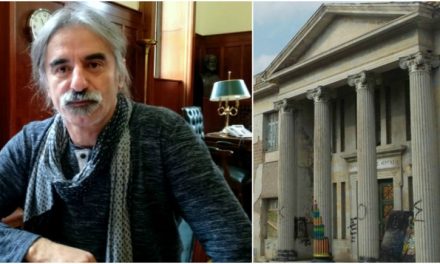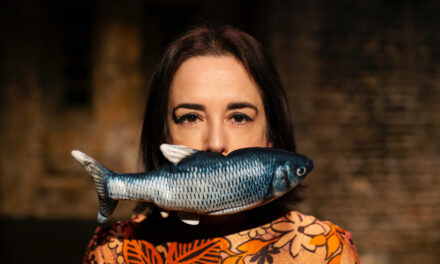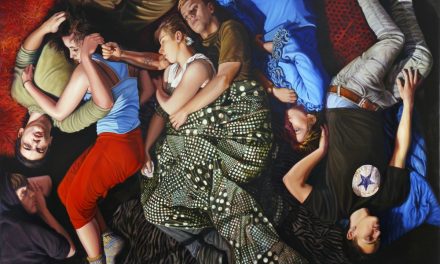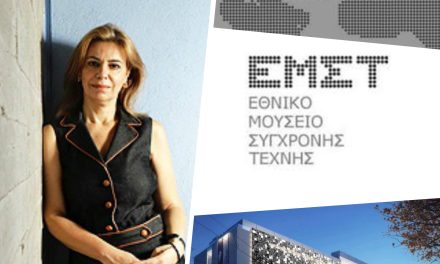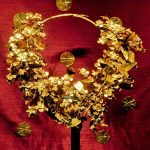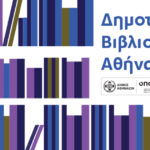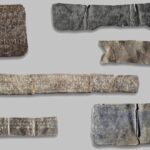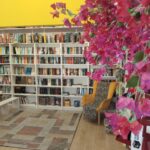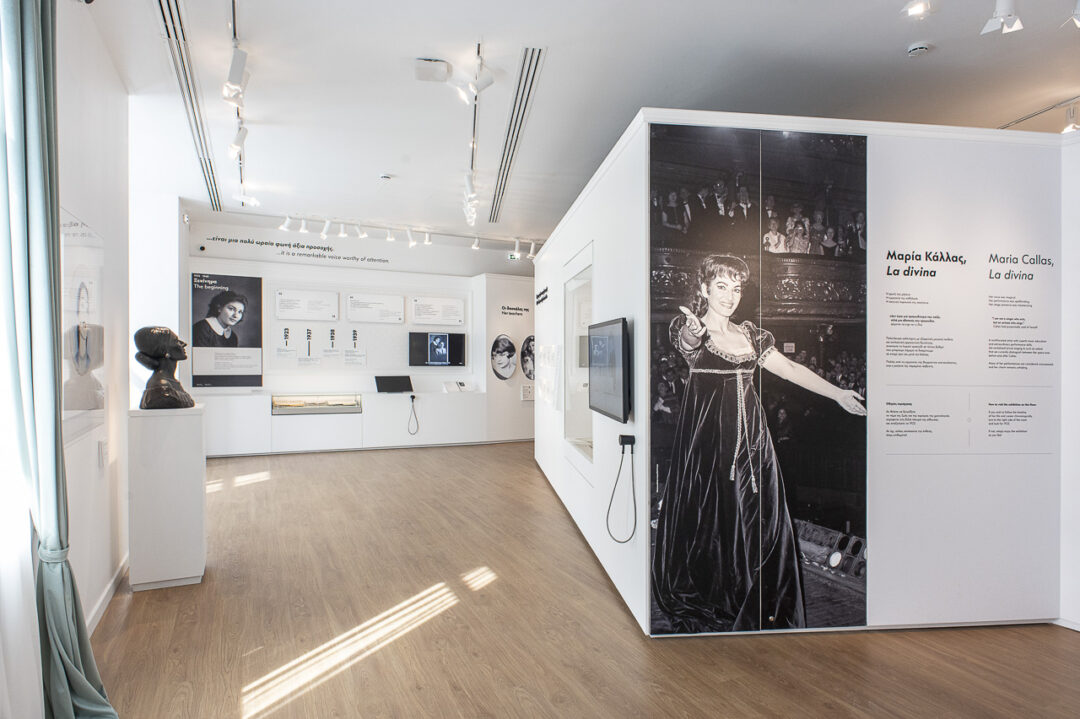
The Maria Callas Museum in Athens was inaugurated in October 2023, on the occasion of the centenary of the artist’s birth. It is the first one dedicated to the Greek soprano who became an opera legend, aiming to introduce the general public to the career and personality of the internationally renowned soprano, while highlighting the elements of her technique that made her unique.
The museum project was implemented by the “Technopolis” cultural organization of the Municipality of Athens, using modern museological approaches. Visitors are invited to immerse themselves in the world of “La Divina” and her unique interpretation of some of the most emblematic roles of her career. Through objects, texts and audiovisual footage, visitors to the museum can follow Maria Callas’ entire career: her first steps, her years in Greece, her international career and major roles, her social and personal life, her emblematic personality, and the legacy she left behind.
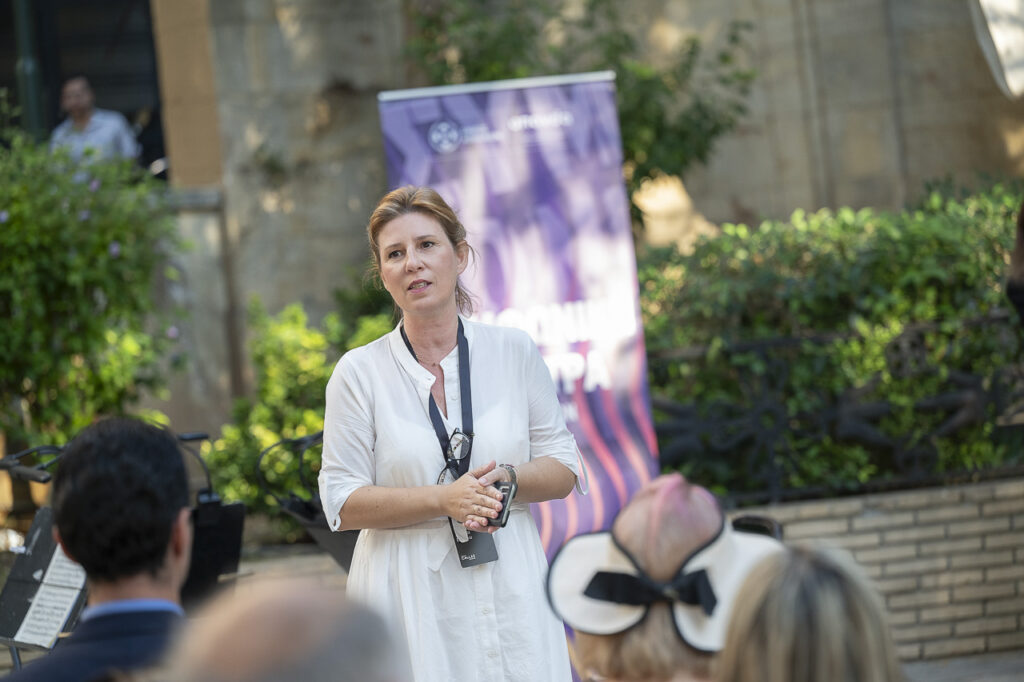
Τhe Maria Callas Museum has been shortlisted for the prestigious European Museum of the Year Awards (EMYA) 2025. From a pool of 41 nominated museums across Europe, the grand winner will be announced in May 2025 at the Sybir Memorial Museum in Białystok, Poland. With the museum having completed one year since its official opening, and on the occasion of its nomination, our sister publication, GRaktuell, spoke with Maria Florou, Director of the Maria Callas Museum and Head of the Museum Department of the Technopolis of the City of Athens.
Maria Florou studied History and Archaeology at the Aristotle University of Thessaloniki and Museum Studies at the University of Leicester in England. In 2004 she was employed at Technopolis of the City of Athens in the sector of Visual Arts and Events. In 2011, she became Head of the Industrial Museum Sector, and took over the coordination of the museology team as well as the project management for the realization of the current Industrial Gas Museum. She was a member of the Board of Directors of OPANDA (Organization of Culture, Sports and Youth of the Municipality of Athens), 2017-2019. In 2022 she took over the project management of the Maria Callas Museum and since 2024 she has also been the Director of Museums at Technopolis.
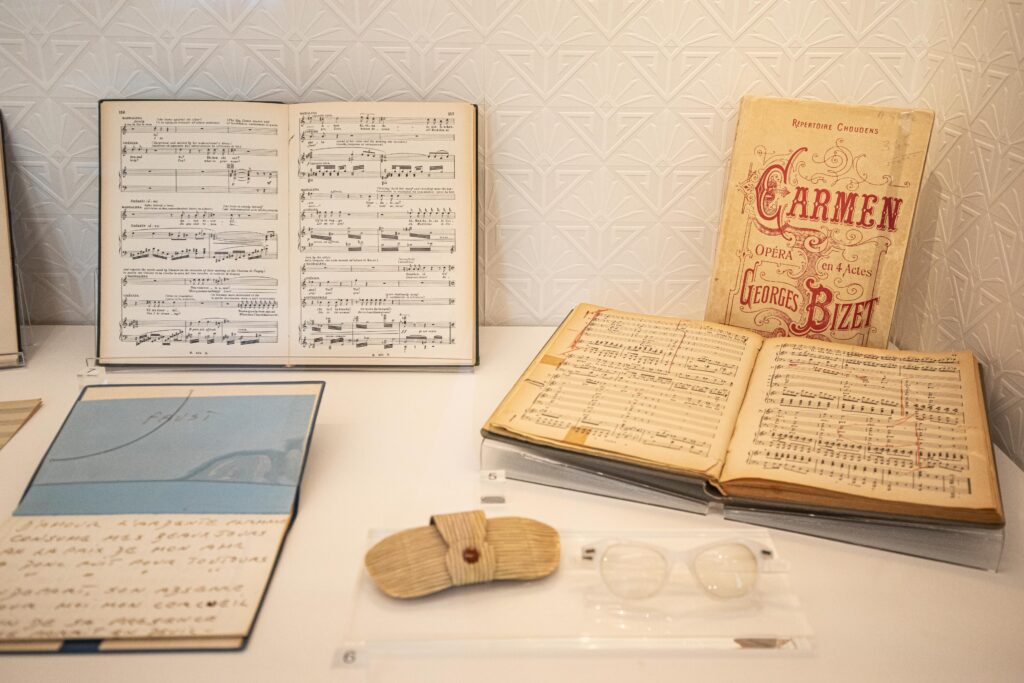
How was the idea for the creation of the Maria Callas Museum initially conceived?
The story behind the establishment of the Maria Callas Museum goes back several years. The Municipality of Athens acquired the core collection in 2000 and housed it in the then newly founded Technopolis, a unique cultural space located in an industrial monument. Shortly afterwards in 2011, under the management of Kostis Bitzanis, as a part of restructuring and redefining the strategic objectives and given that the collection was believed to not be properly showcased in this industrial setting, it is decided that this issue should be further considered. The ultimate goal was to house it in a modern museum, ideally in the centre of Athens and most importantly, following the international standards of an integrated and modern museum institution and not just an exhibition. A preliminary study was therefore commissioned (done by Andromache Gazi, Erato Koutsoudaki-Gerolympou and Alexandros Charkiolakis), which would include both the museological and museographic design. The building at 44, Mitropoleos Street was acquired by the Municipality of Athens in 2010 and was immediately decided that it was appropriate for housing this collection. From the outset, it was intended to be a modern and sustainable museum, with spaces for events, educational programs, the installation of a bistro and a gift shop.
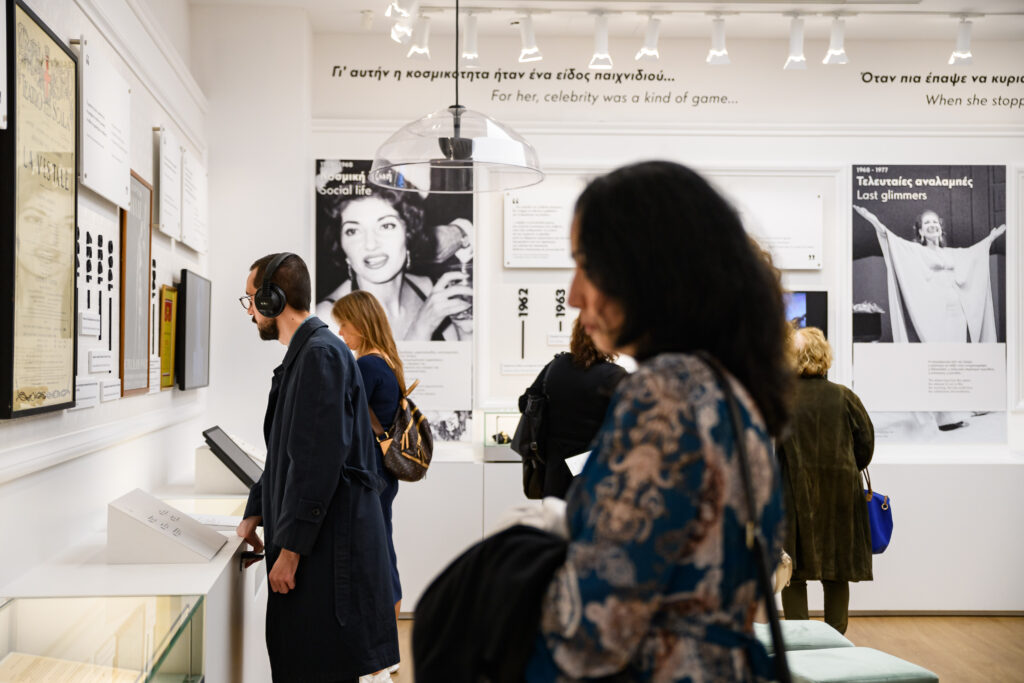
How long did it take to plan out the permanent exhibition, to staff the museum and plan its activities?
The actual planning, implementation and actualization took part from the end of 2020 until October 2023. New members were brought into the museology team, such as Niovi Andrioti (currently the Museum’s Collection Manager), Despina Andriopoulou, who was actively involved in the management of the project and ran the museum in its first months of life, and myself who was the key implementation manager of the whole project and now runs the museum.
The core collection – which in 2000 consisted of about 300 items (letters, clothes, accessories, records and sheet music, press cuttings and a photo album, etc.) – comprised about 1200 items by 2020. During that same period, final decisions were taken on how to present the collection, while he museum’s design studies were updated as were the architectural plans for the spaces beyond the exhibition halls, i.e. for the storage rooms, the café and the gift shop. We then worked intensively (over the course of about a year) at all levels to implement the museological study, the necessary construction works and adjustments to the exhibition spaces, and of course everything needed for the museum to function properly once it was open, such as staffing and drawing up its initial activities and strategic plan.
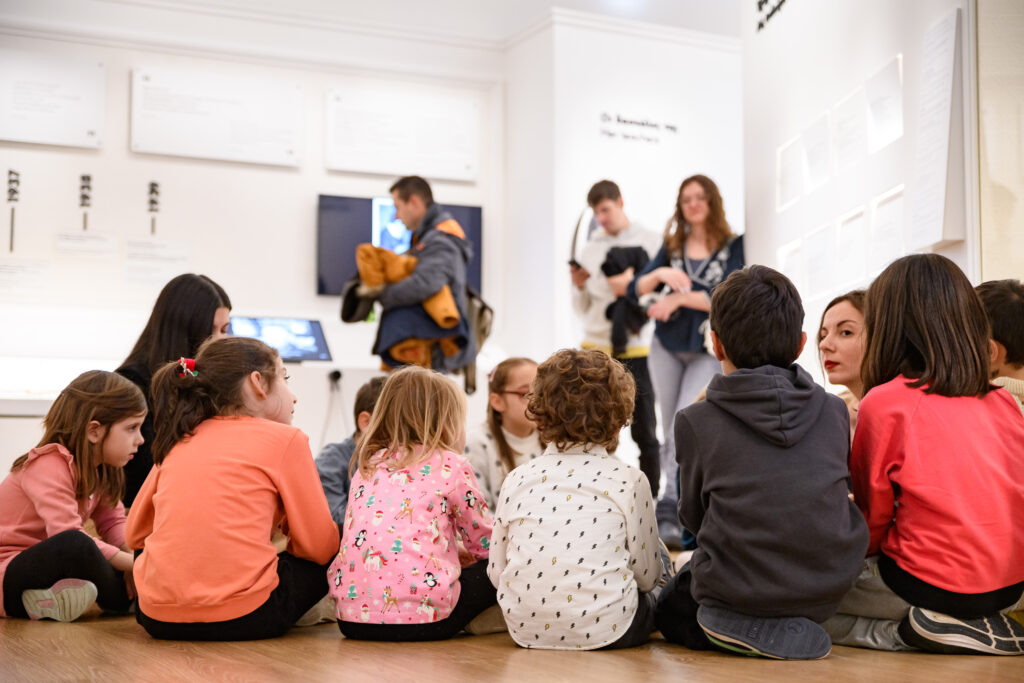
Please describe to us the building and the current exhibits that attract Greek and foreign visitors; how would you sum up the museum’s first year of operations?
The Maria Callas Museum, housed in an imposing three-storey neoclassical building in the city center, opened its doors to the public on October 26, 2023. The permanent exhibition spans the first and second floors, while the ground floor houses the museum’s café and shop. The third floor serves as a multipurpose hall, a space for temporary exhibitions and educational activities. The Museum’s collection includes Maria Callas’s personal items, letters, posters, programs, theatre costumes, clothes, jewellery, photographs, audiovisual material, sheet music, records and works of art inspired by her. Within a year of operation, the collection was enriched with more than 40 new items, reaching a total of 1,200 items.
The Museum now attracts new donations and collaborates with internationally renowned institutions such as the Teatro alla Scala, Royal Opera House Collection, Metropolitan Opera, The Dallas Opera House, V&A Museum, while in Greece it cooperates with the Ministry of Culture, the Athens Conservatory, the National Conservatory, the Athens Concert Hall and Lilian Voudouri Music Library, the Benaki Museum, the ELIA-MIET Archive, etc, and it loans items from its collections to other institutions and foundations such as the National Opera, the Athens and Epidaurus Festival and the National Library of Greece. In addition, the Museum has developed educational programs for children, families and schools, while it is active in various areas of cultural outreach, such as synergies with institutions working in the field of Cinema, cooperation with the Radio and TV network of ERT, hosting journalistic broadcasts in the Museum’s premises, hosting artists from the entire spectrum of the Arts, permanent cooperation with University Institutions, such as the University of Panteion, etc, the co-creation of musical events with Conservatories of the city, giving a platform and promoting young musicians, etc. Through lectures, workshops, film screenings and inclusion activities, the Museum has established itself as a vibrant space for cultural and artistic creation, combining unique exhibits with contemporary initiatives.
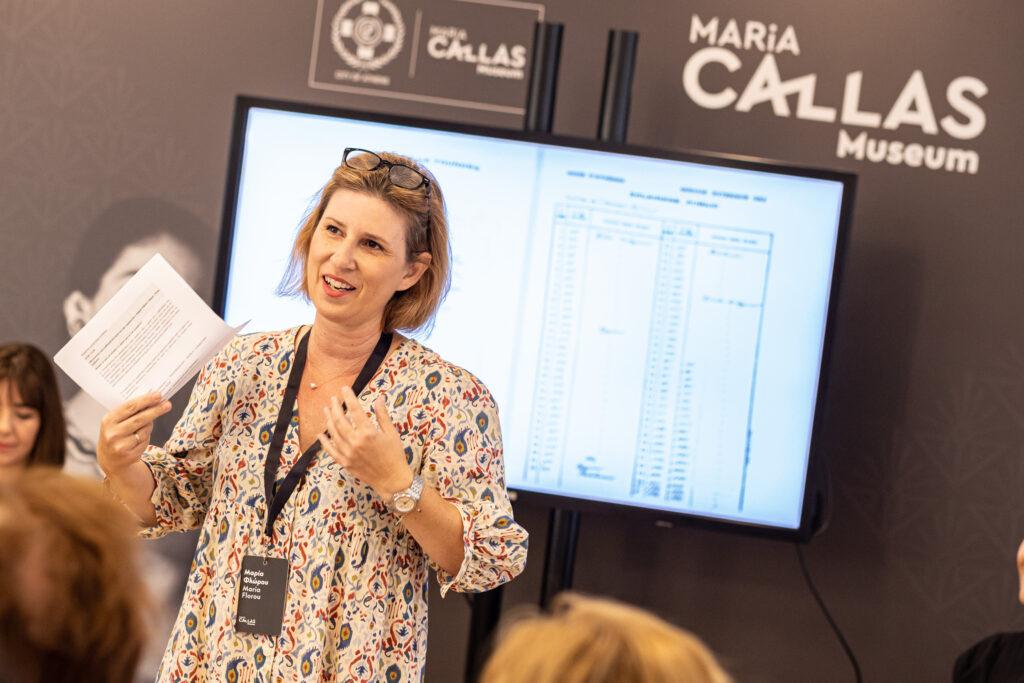
What are you and your partners most concerned with today ( e.g. collection maintenance and enrichment, digitization, etc.) and what are the main challenges you face?
The Maria Callas Museum is called upon to meet important challenges in order to preserve and enhance its unique collection. One of the key issues concerns collection policy, as the constant new donations that present themselves require systematic research and evaluation. Each new object must enrich the Museum’s narrative while maintaining its connection to the present. The conservation of the collection is an ongoing challenge, as it is critical to safeguarding the cultural heritage of Maria Callas. At the same time, digitization is a goal of the Museum and has begun to be implemented in stages, ensuring access to the material for future generations.
The Museum’s educational mission is equally important. Opera, although not as familiar to Greek audiences, can gain new momentum through educational programs aimed at younger generations. The aim is to highlight the timelessness of Callas’ art, linking its history with contemporary issues and approaches, so that it remains relevant for today’s audiences. As part of this we have this year launched a series of Masterclasses, taught by renowned artists from the world of opera, in the hope that it will become a staple for the museum. At the same time, we encourage the creative expression of young artists who are inspired by Callas and see her as an eternal symbol. Our goal is to achieve a continuous feedback of the life of the Museum, placing it on the cultural map of the country, but also fulfilling its multiple roles as a contemporary museum on a daily basis.
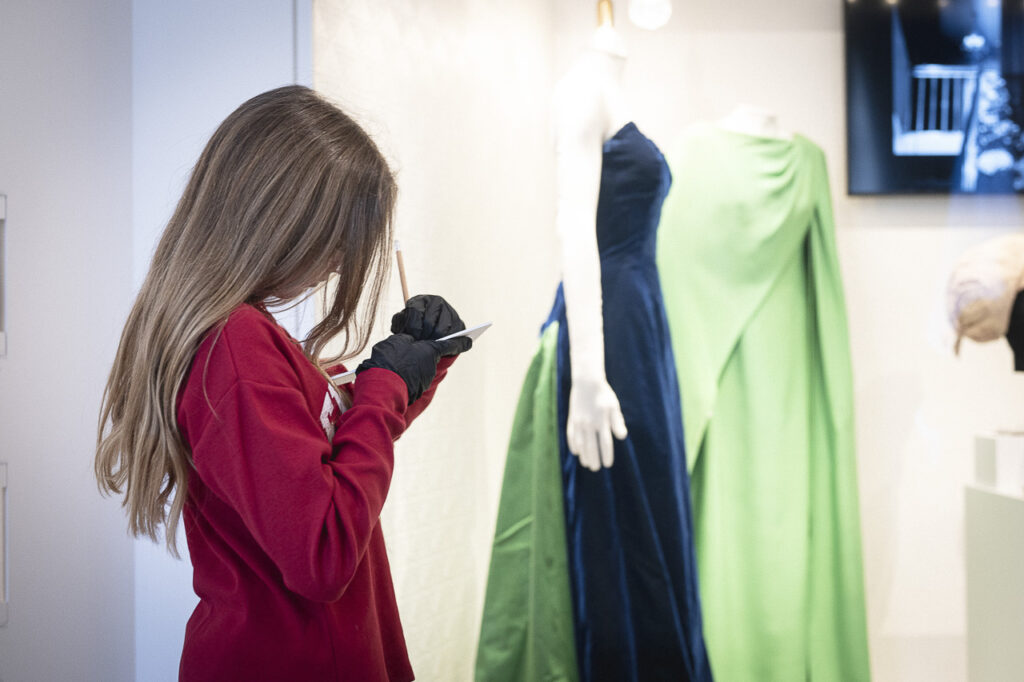
How would you describe your vision for the role of the Maria Callas Museum in the contemporary cultural landscape of Greece and Europe?
As we move through the post-covid digital era, we envision a museum open beyond national borders, which will be an active member of the wider contemporary cultural and museum network, both in Europe and the rest of the world. The Maria Callas Museum, as a biographical museum and at the same time a museum for music and opera, can be a focus of scientific research and a meeting point for different groups of the public, through a variety of activities, fulfilling the principles of inclusion and the educational role of museums (and promoting contemporary culture).
Our dream is that the Museum, inspired by the very special and unique woman-soprano-symbol that was Maria Callas, and by her rich legacy, should be considered a home of the arts, living and developing in its own time and being a center of attraction for different people and innovative ideas.
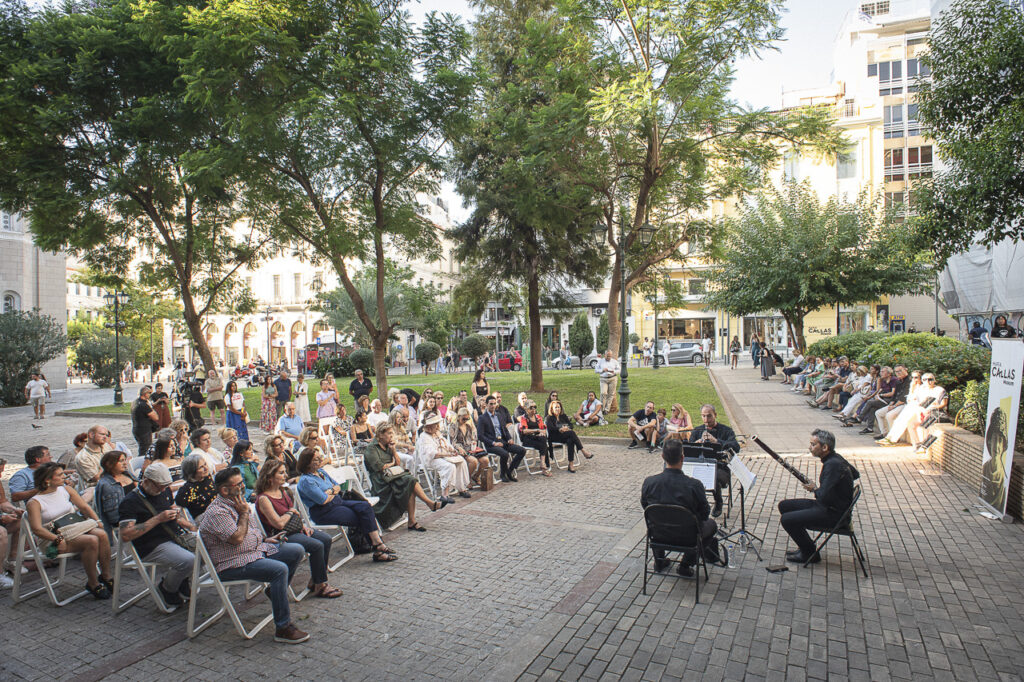
Can you, as a person active in the field of culture, describe modern Greece to us in one sentence?
The culture of modern Greece reflects the sensibilities, beliefs and desires of a society that has survived an economic crisis but remains creative, modern, tries to be inclusive and responsive to the needs of all of us.
Photo credits: Studio Kominis and V. Patsialos, Technopolis City of Athens
Read also via Greek News Agenda: Callas, La Divina; The Maria Callas Museum in Athens

